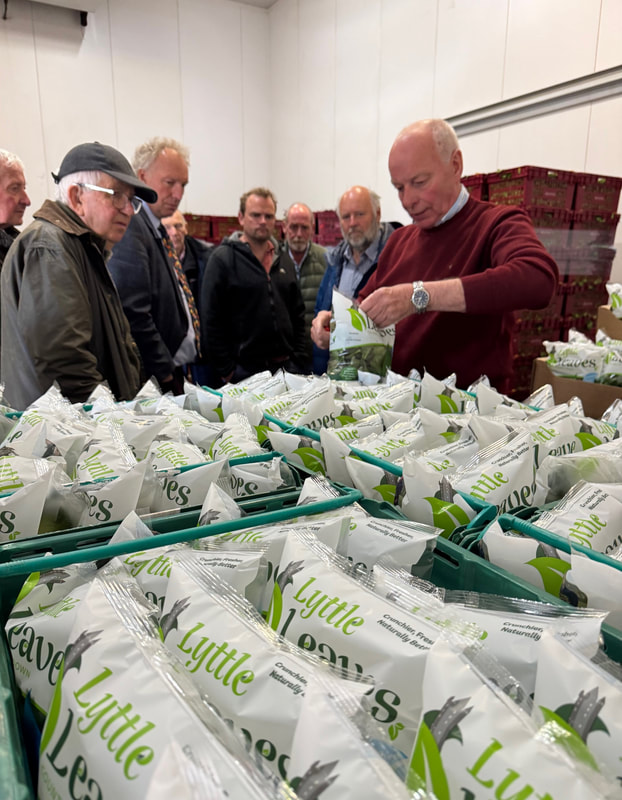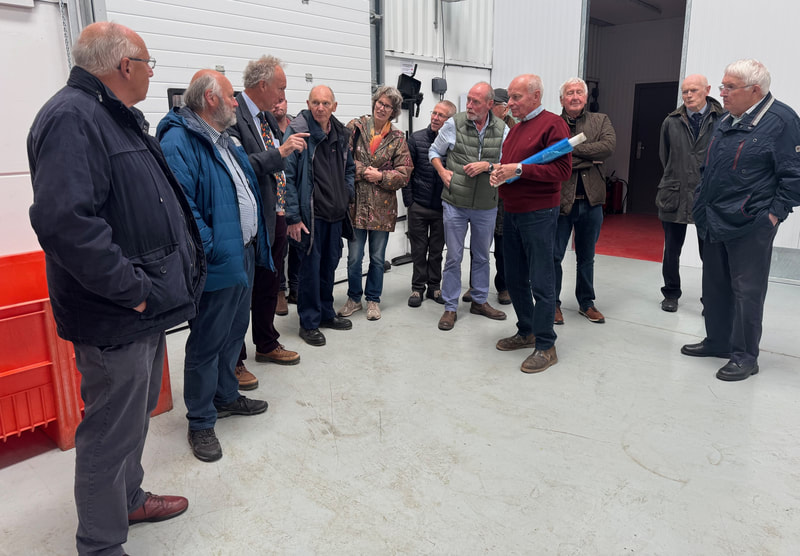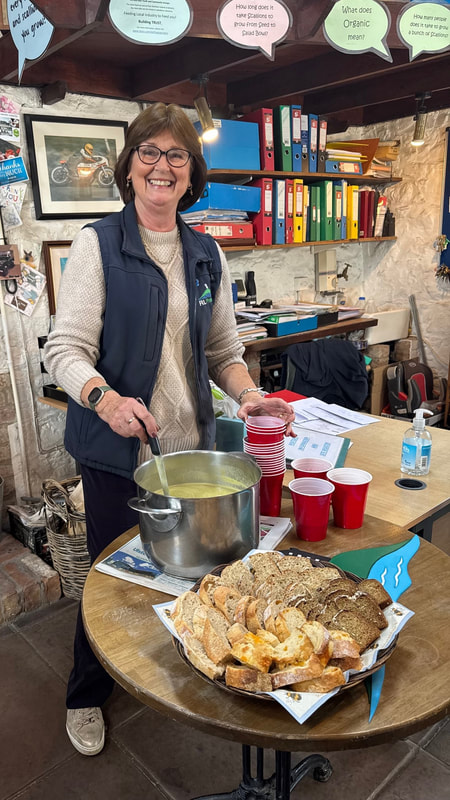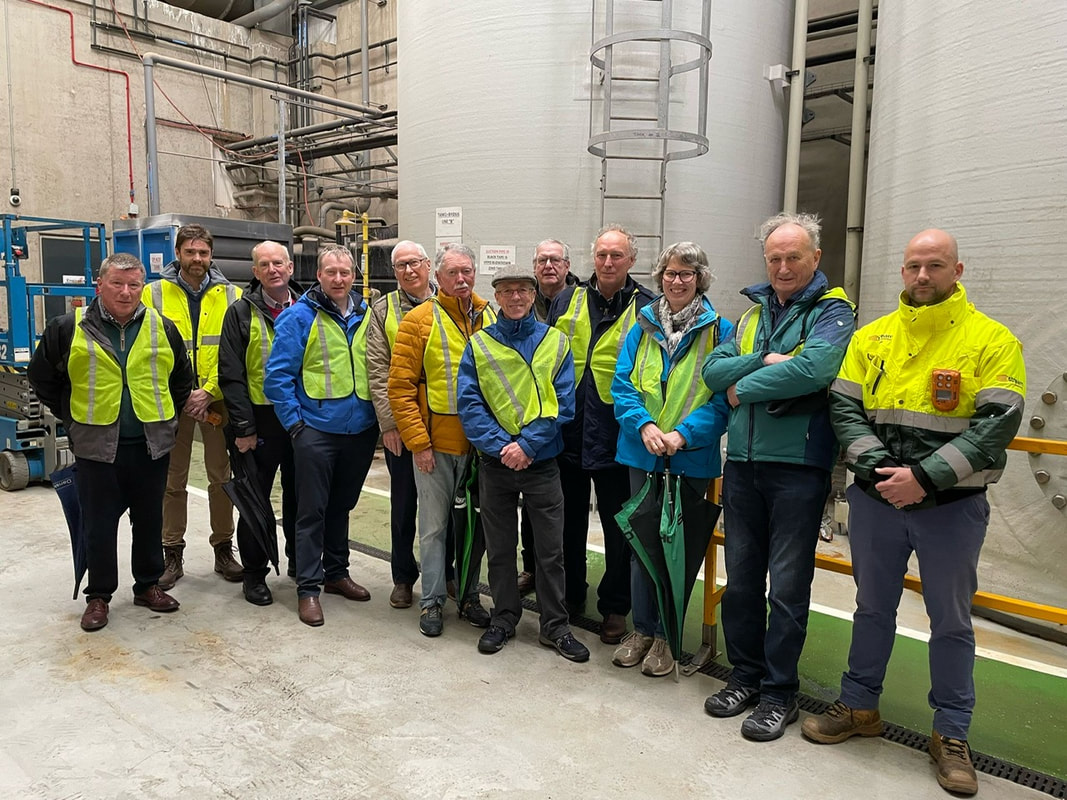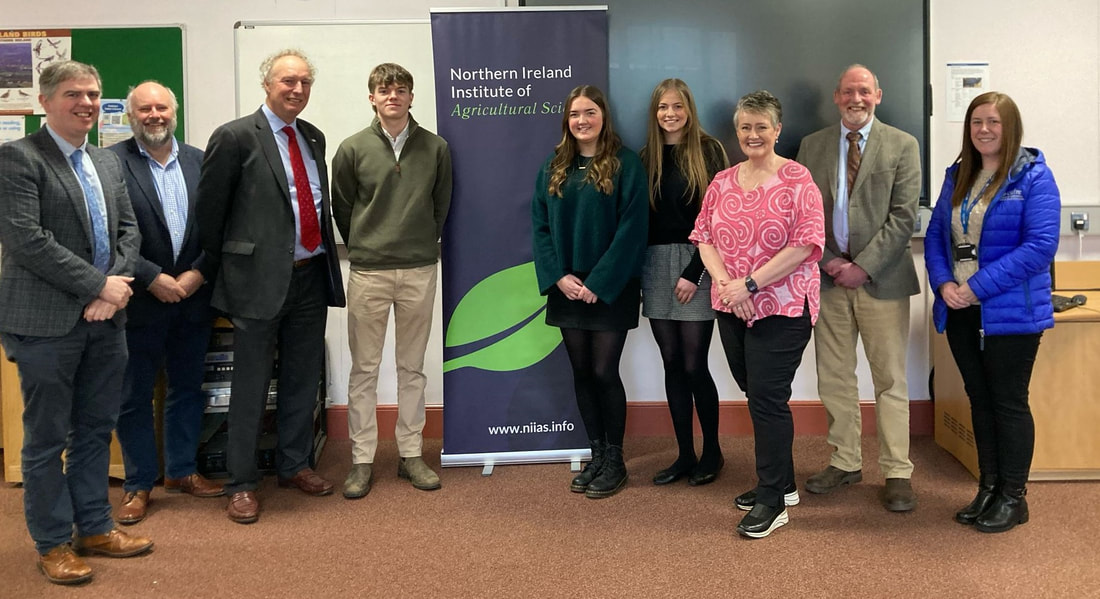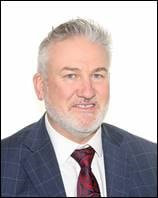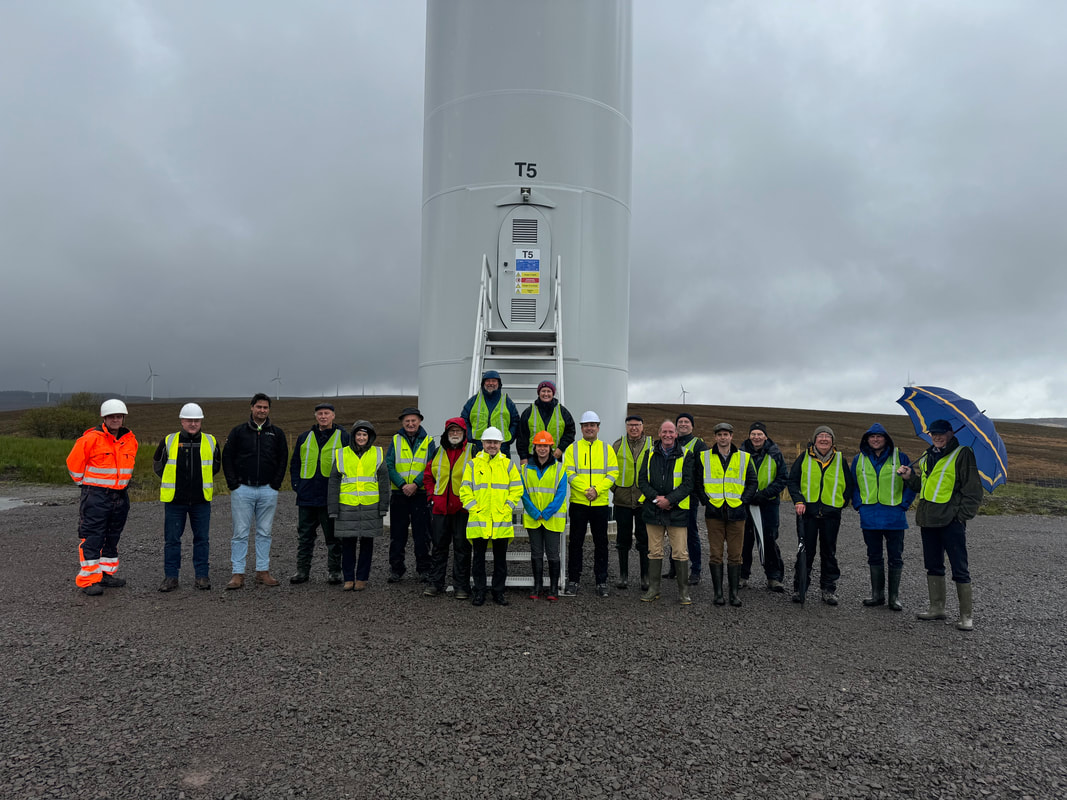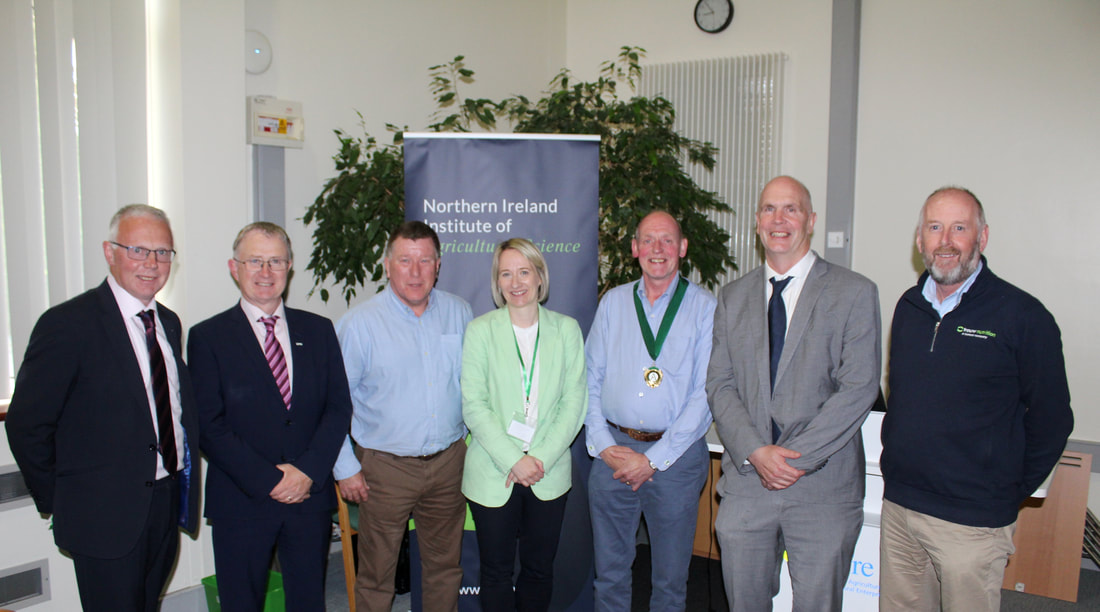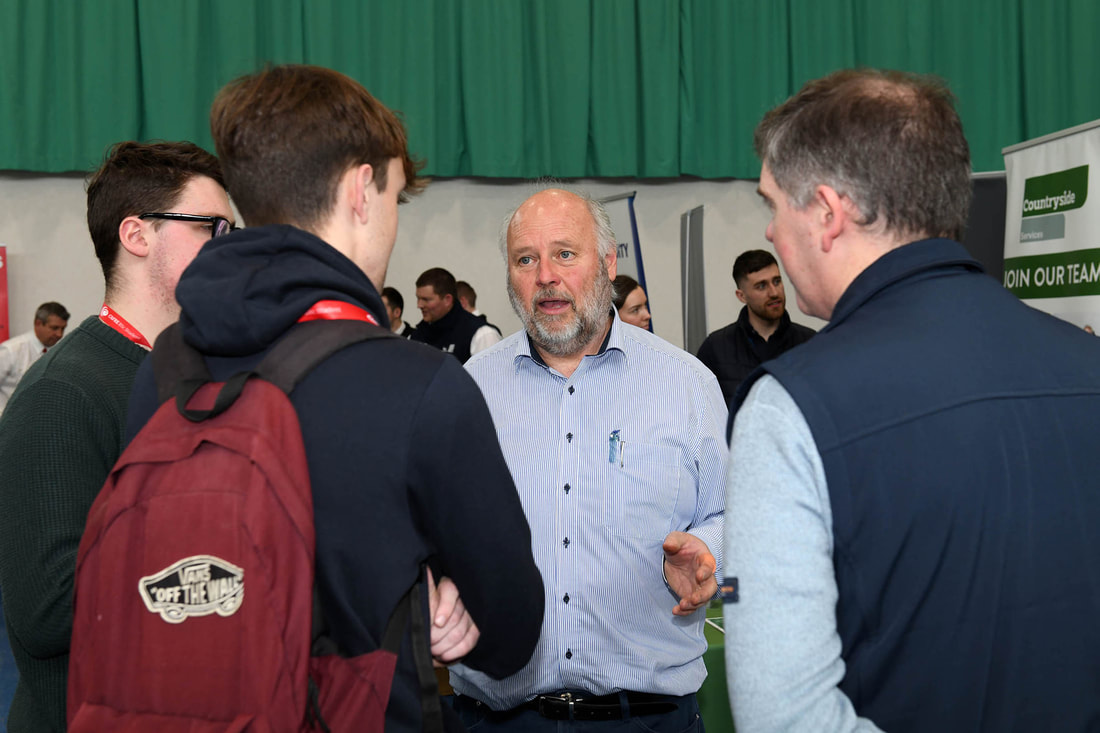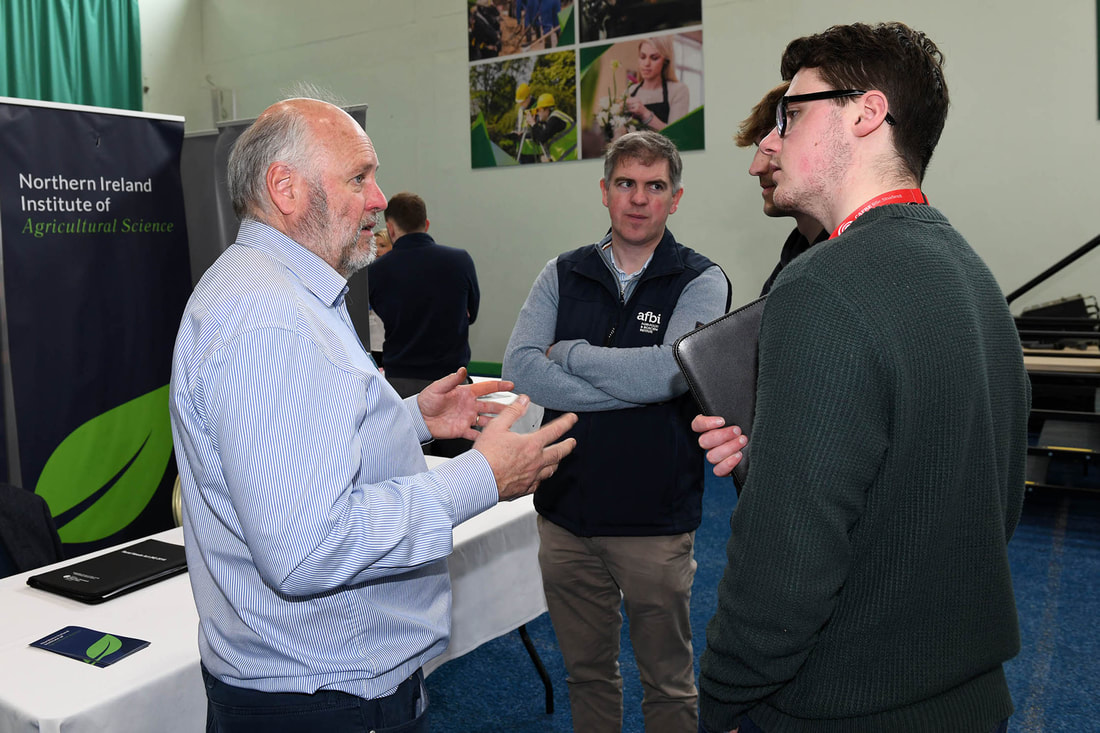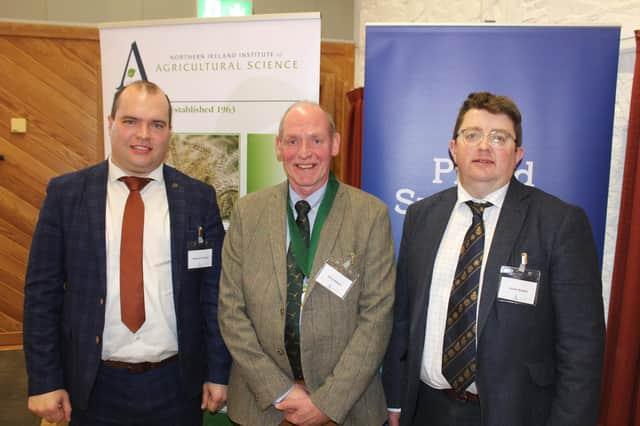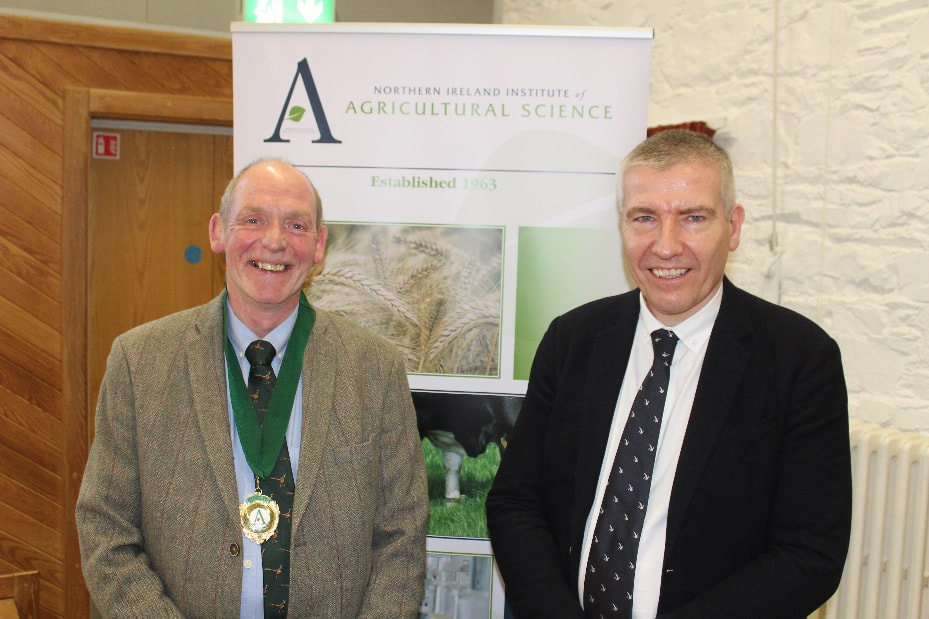ANNUAL CONFERENCE
Tuesday 17th June, CAFRE- Greenmount Campus, saw a large turnout to address the issue of 'Securing High Animal health Status - threats and opportunities'. Delegates heard from three excellent speakers - Dr David Kyle, Deputy Chief Veterinary Officer, DAERA, Dr Sam Strain, CE of AHWNI and Mr David Rea, Vet and Farmer.
More details and photographs to follow
Tuesday 17th June, CAFRE- Greenmount Campus, saw a large turnout to address the issue of 'Securing High Animal health Status - threats and opportunities'. Delegates heard from three excellent speakers - Dr David Kyle, Deputy Chief Veterinary Officer, DAERA, Dr Sam Strain, CE of AHWNI and Mr David Rea, Vet and Farmer.
More details and photographs to follow
Visit to Lyttle's Vegetable farm
On Wednesday 4th June, NIIAS members enjoyed a visit to the farm of the Lyttle family (Roy, his wife Sheila and son Alexander). They have farmed on the shores of Strangford Lough, just outside Newtownards for over 30 years. Starting off from humble beginnings they have grown the business into a highly successful and innovative enterprise.
The primary crop in the summer is Spring Onions (Scallions) and for ten months of the year, is Leeks. These are grown, harvested, prepared and packed and finally delivered to client specification. Parsley and Herb Celery, (or Soup Celery) are also grown for processors who produce washed and chopped soup vegetables and ready-made soups supplied to the major multiples across the UK. Beetroot and coleslaw Cabbage are also included in the range. They also grow a range of organic vegetables, including Cabbages and Leeks, as well as Purple Sprouting Broccoli. Since 2017 they have been growing Organic Potatoes for independent retailers and box schemes. They are working to extend the season of availability of supply in order to reduce imports because consumers are becoming increasingly supportive of local producers. Recently their son launched a new product, 'Lyttle Leaves' and it is expected to do well in the ever-challenging supermarket environment.
A purpose built viewing gallery allowed members to view the vegetable production process and the Lyttles are keen to show groups and interested parties the journey of their produce from soil to salad or soup. They are passionate about what they do and this was clear in how they talked about the development and growth of their business over the years.
This was an excellent visit and rounded off with a fantastic cup of leek and potato soup.
On Wednesday 4th June, NIIAS members enjoyed a visit to the farm of the Lyttle family (Roy, his wife Sheila and son Alexander). They have farmed on the shores of Strangford Lough, just outside Newtownards for over 30 years. Starting off from humble beginnings they have grown the business into a highly successful and innovative enterprise.
The primary crop in the summer is Spring Onions (Scallions) and for ten months of the year, is Leeks. These are grown, harvested, prepared and packed and finally delivered to client specification. Parsley and Herb Celery, (or Soup Celery) are also grown for processors who produce washed and chopped soup vegetables and ready-made soups supplied to the major multiples across the UK. Beetroot and coleslaw Cabbage are also included in the range. They also grow a range of organic vegetables, including Cabbages and Leeks, as well as Purple Sprouting Broccoli. Since 2017 they have been growing Organic Potatoes for independent retailers and box schemes. They are working to extend the season of availability of supply in order to reduce imports because consumers are becoming increasingly supportive of local producers. Recently their son launched a new product, 'Lyttle Leaves' and it is expected to do well in the ever-challenging supermarket environment.
A purpose built viewing gallery allowed members to view the vegetable production process and the Lyttles are keen to show groups and interested parties the journey of their produce from soil to salad or soup. They are passionate about what they do and this was clear in how they talked about the development and growth of their business over the years.
This was an excellent visit and rounded off with a fantastic cup of leek and potato soup.
STREAM BIOENERGY VISIT
Members had an excellent visit to the Stream BioEnergy facility just outside Ballymena on Wednesday 16th April 2025. Stream BioEnergy is a biogas development and operation company with an emphasis on delivering infrastructure to process organic waste throughout the United Kingdom (UK) and Ireland. As part of a vision for an improved, safer, more secure and sustainable clean energy future, Stream promotes the use of anaerobic digestion (AD) to generate renewable energy from organic waste and by- product materials in a way that safeguards the environment.
Stream has developed and successfully operates an award-winning biogas plant near Ballymena. This is a unique facility that processes only poultry litter as a single feedstock (the first plant if its kind globally) generating 3MW of electricity from 40,000 tonnes per annum of material. The electricity generated is exported to the national grid and is sufficient to power c.4,000 homes. Planning permission has been secured for a large-scale expansion of this facility with development of that project underway.
We hope to organise a second visit to Stream BioEnergy as there has been interest from more members to attend.
Members had an excellent visit to the Stream BioEnergy facility just outside Ballymena on Wednesday 16th April 2025. Stream BioEnergy is a biogas development and operation company with an emphasis on delivering infrastructure to process organic waste throughout the United Kingdom (UK) and Ireland. As part of a vision for an improved, safer, more secure and sustainable clean energy future, Stream promotes the use of anaerobic digestion (AD) to generate renewable energy from organic waste and by- product materials in a way that safeguards the environment.
Stream has developed and successfully operates an award-winning biogas plant near Ballymena. This is a unique facility that processes only poultry litter as a single feedstock (the first plant if its kind globally) generating 3MW of electricity from 40,000 tonnes per annum of material. The electricity generated is exported to the national grid and is sufficient to power c.4,000 homes. Planning permission has been secured for a large-scale expansion of this facility with development of that project underway.
We hope to organise a second visit to Stream BioEnergy as there has been interest from more members to attend.
CAFRE MOCK Interviews
NIIAS was again delighted to put forward 6 panel members for BSc Agricultural Technology (year1) Mock Interviews on 18 February 2025 at Greenmount Campus.
3 panels interviewed 17 students for a range of positions in agricultural organisations such as Ruminant Nutrition Adviser, Poultry Hatchery Manager, Agronomist and Dairy Genetic Specialist. Students pre-prepared their CVs and were then interviewed. Students received individual feedback sheets from their panel and a whole group feedback was given by the panel members at the conclusion. The top performing student from each panel was awarded £30 towards their upcoming study tour.
It was clear that the students put a lot of effort into preparing for the interviews and despite some initial nerves, performed superbly. All panel members were very impressed with the standard and professionalism shown by the students. Given that this was the first time many had completed an interview bodes well for the quality of new entrants entering the industry. Well done to all the students involved and we look forward to helping out with this valuable exercise again in the future.
NIIAS was again delighted to put forward 6 panel members for BSc Agricultural Technology (year1) Mock Interviews on 18 February 2025 at Greenmount Campus.
3 panels interviewed 17 students for a range of positions in agricultural organisations such as Ruminant Nutrition Adviser, Poultry Hatchery Manager, Agronomist and Dairy Genetic Specialist. Students pre-prepared their CVs and were then interviewed. Students received individual feedback sheets from their panel and a whole group feedback was given by the panel members at the conclusion. The top performing student from each panel was awarded £30 towards their upcoming study tour.
It was clear that the students put a lot of effort into preparing for the interviews and despite some initial nerves, performed superbly. All panel members were very impressed with the standard and professionalism shown by the students. Given that this was the first time many had completed an interview bodes well for the quality of new entrants entering the industry. Well done to all the students involved and we look forward to helping out with this valuable exercise again in the future.

CAFRE Careers Fair 2025
NIIAS Committee members John Fegan and Francis Lively attended the CAFRE Careers Fair on 22 January 2025. Having attended last year, we were keen to return and share as much information about NIIAS as possible. There was keen interest from many students and some new members of CAFRE staff. Again, we will follow these up and hopefully swell our membership further.
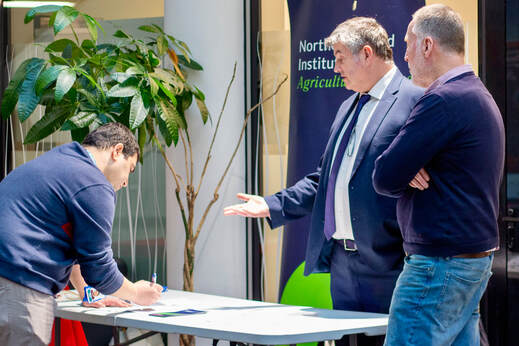
QUB Agri, Food and Life Sciences Careers Fair
NIIAS Committee members George Moffett and Richard Halleron attended the QUB Agri, Food and Life Sciences Careers Fair on 22 January 2025. This was the first time the event was held and it proved to be very successful with a good turnout of students - under and post graduate. The students were keen to learn about the extent of the work of NIIAS as well as the connections and events that are organised each year. Many provided their contact details and we will follow that up in the hope of getting some new members.
NIIAS Committee members George Moffett and Richard Halleron attended the QUB Agri, Food and Life Sciences Careers Fair on 22 January 2025. This was the first time the event was held and it proved to be very successful with a good turnout of students - under and post graduate. The students were keen to learn about the extent of the work of NIIAS as well as the connections and events that are organised each year. Many provided their contact details and we will follow that up in the hope of getting some new members.
2023/24 activities
NIIAS Committee Members visit the Irish Salt Mining Company, 15 July 2024
6 members of the Northern Ireland Institute of Agricultural Science (NIIAS) Executive Committee visited the impressive salt mines at Carrickfergus in Co Antrim.
The operation, which is owned by the Irish Salt Mining and Exploration Company Ltd, provides road-de-icing grit, used across the island of Ireland, Scotland and other parts of the UK. Salt licks are also made available to agricultural merchants and individual farmers. However, the vast bulk of the mines’ output is used for winter gritting operations with local councils and road maintenance companies the main customers for the product.
Commercial mining has taken place at the East Antrim site for almost 60 years. All of the mining takes place underground with the current extraction operations taking place some 500m below the surface and extending 3km inland with a tunnel complex of some 65km.
The salt is blasted out using commercial explosives and is crushed at a number of locations and then brought to the surface using conveyors. 500,000t of salt are produced at Carrickfergus on an annual basis. The business is energy intensive and the company plans to develop a solar farm to help power the mining operation on lands owned by the company in the near future.
6 members of the Northern Ireland Institute of Agricultural Science (NIIAS) Executive Committee visited the impressive salt mines at Carrickfergus in Co Antrim.
The operation, which is owned by the Irish Salt Mining and Exploration Company Ltd, provides road-de-icing grit, used across the island of Ireland, Scotland and other parts of the UK. Salt licks are also made available to agricultural merchants and individual farmers. However, the vast bulk of the mines’ output is used for winter gritting operations with local councils and road maintenance companies the main customers for the product.
Commercial mining has taken place at the East Antrim site for almost 60 years. All of the mining takes place underground with the current extraction operations taking place some 500m below the surface and extending 3km inland with a tunnel complex of some 65km.
The salt is blasted out using commercial explosives and is crushed at a number of locations and then brought to the surface using conveyors. 500,000t of salt are produced at Carrickfergus on an annual basis. The business is energy intensive and the company plans to develop a solar farm to help power the mining operation on lands owned by the company in the near future.

HOW CAN SCIENCE DELIVER SUSTAINABLE AGRICULTURE IN A CHANGING CLIMATE?
There was a large turnout for the annual NIIAS Conference, kindly sponsored by Trouw Nutrition, that was held on Wednesday 12th June 2024 at CAFRE, Greenmount Campus . The event addressed the role of science in delivering a more sustainable farming and food sector.
Speakers were Dr Alistair Carson, DAERA Chief Scientific Adviser, Prof. Frank O’Mara, Director of Teagasc, Aileen Lawson, UFU Senior Policy Officer and John Egerton, President Ulster Grassland Society.
There was a large turnout for the annual NIIAS Conference, kindly sponsored by Trouw Nutrition, that was held on Wednesday 12th June 2024 at CAFRE, Greenmount Campus . The event addressed the role of science in delivering a more sustainable farming and food sector.
Speakers were Dr Alistair Carson, DAERA Chief Scientific Adviser, Prof. Frank O’Mara, Director of Teagasc, Aileen Lawson, UFU Senior Policy Officer and John Egerton, President Ulster Grassland Society.
Speakers and sponsors - John Egerton, President of UGS, Professor Frank O'Mara, Director of Teagasc, Ian McCluggage, President of NIIAS, Aileen Lawson, Senior Policy Officer, UFU, Jim Freeburn, Chair NIIAS, Dr Alistair Carson, DAERA Chief Scientific Officer and Jim Uprichard of sponsors Trouw Nutrition
NIIAS members visit the plant propagation nursery of Trevor Gabbie, Comber, Thursday 30 May 2024

Trevor left Greenmount College in 1986 and joined the family beef and sheep farm. The following year he began producing plant plugs for his own vegetable production. However, the plant plug enterprise expanded rapidly through the early 1990’s resulting in the cessation of vegetable growing and specialisation in plant propagation. He now produces approximately 55 million plants per annum which include cabbage, sprouts, kale, lettuce, leeks, pac-choi, beetroot and pumpkins to name a few. These are sold as either - modules, peat blocks or Plant Tape to customers throughout the length and breadth of Ireland.
Trevor outlined the development and expansion of the business, highlighted the logistical challenges and issues his business has faced regarding Brexit, labour and sustainability, and walked members through the production process from seed sowing to plant dispatch in specialised containers. Plants are grown to order and precision sowing happens throughout the year. Meticulous records are kept at the seeding stage with bar codes used on each batch of seed trays to ensure each customer receives the plant type and variety ordered by the date designated for planting. The seed trays are watered and placed in a controlled environment germination unit before being transferred to the growing tunnels or glass houses where they are watered daily and monitored until they are ready for dispatch to the customer for planting out. Trevor demonstrated and explained the differences between each of the growing methods used, i.e. the modules, peat blocks and Plant Tape, and discussed the importance of achieving and maintaining a high plant health status in his business. He also demonstrated some of the labour saving and plant handling machinery and equipment that had been built locally based on his ideas and design.
Those members of the NI Institute of Agricultural Science who attended the visit were very impressed by the scale and logistics of the plant propagation operation, the adoption of new technology and processes, and the innovative equipment and machinery he had installed to reduce costs and remain competitive in the market.
Trevor outlined the development and expansion of the business, highlighted the logistical challenges and issues his business has faced regarding Brexit, labour and sustainability, and walked members through the production process from seed sowing to plant dispatch in specialised containers. Plants are grown to order and precision sowing happens throughout the year. Meticulous records are kept at the seeding stage with bar codes used on each batch of seed trays to ensure each customer receives the plant type and variety ordered by the date designated for planting. The seed trays are watered and placed in a controlled environment germination unit before being transferred to the growing tunnels or glass houses where they are watered daily and monitored until they are ready for dispatch to the customer for planting out. Trevor demonstrated and explained the differences between each of the growing methods used, i.e. the modules, peat blocks and Plant Tape, and discussed the importance of achieving and maintaining a high plant health status in his business. He also demonstrated some of the labour saving and plant handling machinery and equipment that had been built locally based on his ideas and design.
Those members of the NI Institute of Agricultural Science who attended the visit were very impressed by the scale and logistics of the plant propagation operation, the adoption of new technology and processes, and the innovative equipment and machinery he had installed to reduce costs and remain competitive in the market.
Discover YOUR FUTURE - Careers Fair 2024
Steven Millar and Francis Lively from NIIAS Committee attended the CAFRE Careers Fair on Friday 29th April 2024. This was a very busy day with lots of opportunities to speak to students about the benefits in joining NIIAS. We hope that when we follow-up those connections we will see some new members join the Institute and bring some fresh ideas for future event planning.
NIIAS supports Agricultural student to attend BSAS
Commenting after his attendance, Matthew said “The BSAS conference, a globally recognised three-day event took place in Belfast this year and I had the honour of attending it. The variety of topics was widespread covering all aspects of animal science and agriculture which I found very useful and relevant to my current studies for an agriculture degree. Over the course of the event researchers from all over the world gave detailed insights into their current work as they strive to combat the challenges facing the industry, from climate change to anthelmintic resistance. The event reassured me that the industry is working together to ensure its viability for the future generations and finally I’d like to thank NIIAS who sponsored my ticket for the event.”
CAFRE Student Mock Interviews

First year BSc (Hons) Agricultural Technology students at CAFRE, Greenmount Campus recently went through a mock interview process with interview panels hosted by members of the Northern Ireland Institute of Agricultural Science (NIIAS). The roles included an Agricultural Sales Specialist, Working Estate Manager, Poultry Technical Officer, and Ruminant Nutrition Advisor. NIIAS gave students a fantastic opportunity to experience a realistic job interview, receive valuable feedback from highly experienced panel members, and improve their employability skills. Students really valued the experience which has now better prepared them for their work placements and future careers.
NIIAS Visit Reynolds Farm at Blakiston Houston Estates

Around 30 members and colleagues visited the dairy unit at Blakiston Houston Estates on 28th February 2024 where they heard about the management of the dairy herd, use of renewable energy on the farm and the separation of slurry, nutrient management and Anaerobic digestor feedstock. Further information on the visit can be found using the following links:
https://www.farmersjournal.ie/more/northern-ireland/separating-slurry-to-improve-water-quality-808046
https://www.farmersjournal.ie/more/northern-ireland/milking-happy-medium-cows-in-dundonald-808922
https://www.farmersjournal.ie/more/northern-ireland/separating-slurry-to-improve-water-quality-808046
https://www.farmersjournal.ie/more/northern-ireland/milking-happy-medium-cows-in-dundonald-808922
Nuffield Scholar presents to members of the Northern Ireland Institute of Agricultural Science
Nuffield Scholar, Jason Rankin, presented to members of the Northern Ireland Institute of Agricultural Science (NIIAS). He specifically highlighted the pivotal year that 2024 is set to become, where the activities of the Nuffield Farming Scholarships Trust in Northern Ireland are concerned. Belfast will host the organisation’s 2024 UK conference. The event will be centred on the city’s Assembly Rooms between November 19 and 22. Nuffield have also ‘test launched’ its new, Next-Gen programme in Northern Ireland. The initiative will provide two people, aged between 18 and 24 years’ old, with an opportunity to study the relevance and scope of the UK dairy industry.
|
Nuffield Scholar, Jason Rankin, recently presented to members of the Northern Ireland Institute of Agricultural Science (NIIAS). He is pictured with Richard Primrose, Bank of Ireland (left) and NIIAS president, Jim Freeburn. Pic: Richard Halleron
|
NIIAS pre-Winter Fair Breakfast SeminarIan Stevenson, Chief Executive of the Dairy Council for Northern Ireland addressed the NIIAS pre-Dairy RUAS Winter Fair at AFBI, Hillsborough on 14th December 2023.
In his address he reflected on the impact made by the Council’s ‘Sustainable Dairy Programme’ over the past six years, commenting on the range of dairy farming enterprises that feature across Northern Ireland, all of which are equally sustainable – both now and into the future. He highlighted that Northern Ireland’s milk producers have nothing to fear from the information challenge that lies ahead. This comes as the pressure mounts to secure detailed information regarding the performance levels achieved by individual farms. He views this process as one that will allow processors to more easily secure premium market opportunities. He noted that the emissions’ intensity associated with milk production in Northern Ireland has fallen by 36% over the past three decades and still moving in the right direction. The importance of science-led research along with the significant investment undertaken by dairy farmers should be recognised. He concluded that the milk industry must improve on the way it communicates its exciting developments to consumers and the public at large. |
NIIAS Chair, Jim Freeburn with Ian Stevenson, Chief Executive of the Dairy Council for Northern Ireland. Pic: Richard Halleron
|

